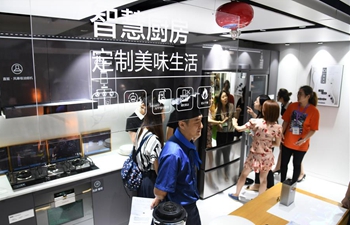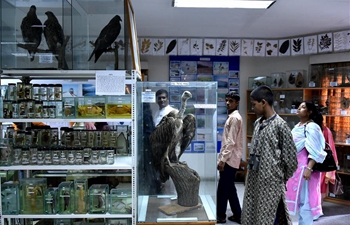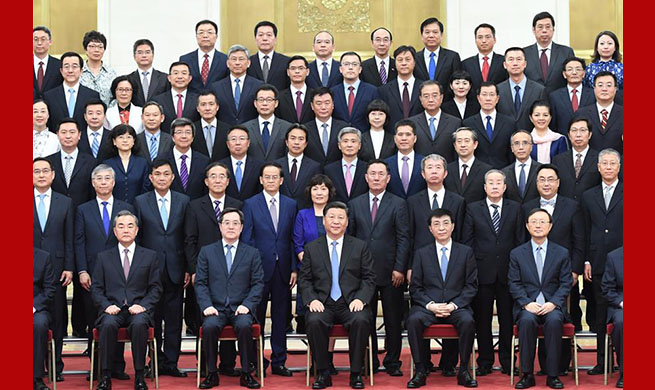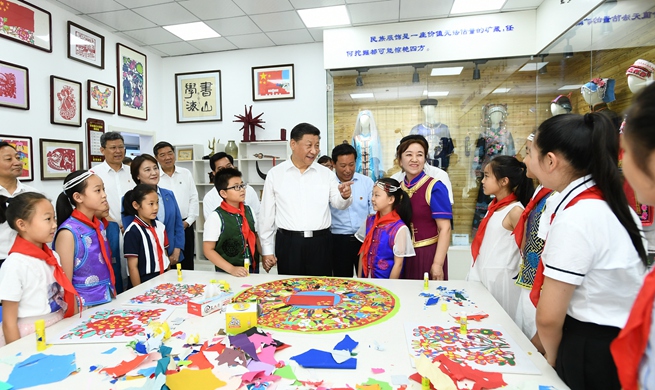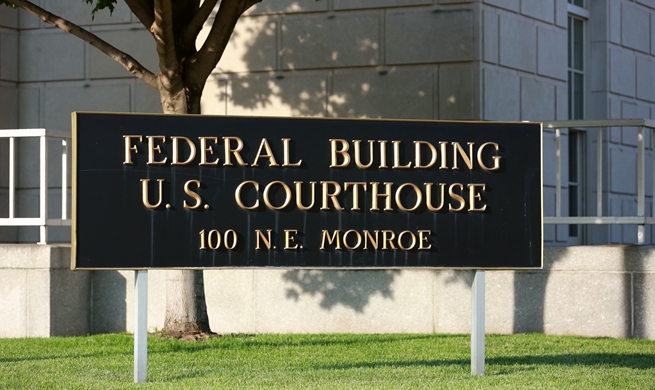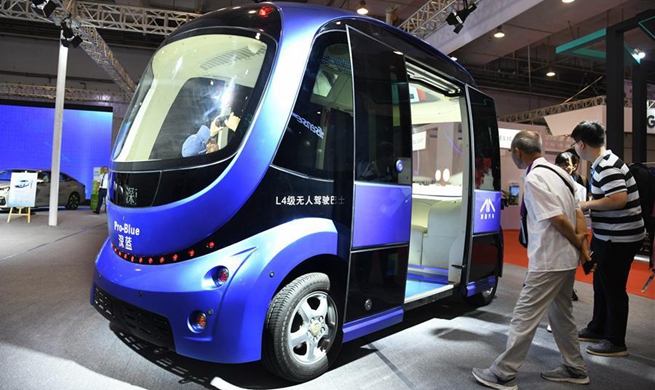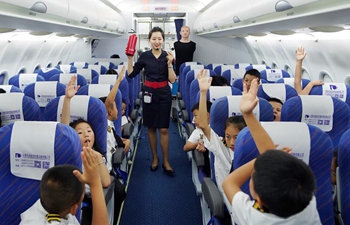BEIJING, July 19 (Xinhua) -- China's space lab Tiangong-2 reentered the earth's atmosphere under control at around 9:06 p.m. on Friday (Beijing time), China Manned Space Agency (CMSA) said.
A small amount of the spacecraft's debris fell into the predetermined safe sea area in the South Pacific, according to the agency.
Tiangong-2's controlled reentry into the atmosphere marks the successful completion of all the tasks in the space lab phase in China's manned space program, said Zhou Jianping, chief designer of China's manned space program.
Efforts are being made to step up preparations for constructing China's space station, CMSA said.
Tiangong-2, an improved version of Tiangong-1, is considered China's first space lab. Launched on Sept. 15, 2016, the space lab has worked in orbit over 1,000 days, much longer than its 2-year designed lifespan.
Comprising an experiment module and a resource module, the space lab has a total length of 10.4 meters, a maximum diameter of 3.35 meters and a takeoff weight of 8.6 tonnes. After its solar panels are unfolded, its wingspan reaches 18.4 meters.
Tiangong-2 has docked with the Shenzhou-11 manned spaceship and Tianzhou-1 cargo spacecraft. Chinese astronauts Jing Haipeng and Chen Dong stayed 30 days in the space lab.
"With the successful controlled deorbit, the Tiangong-2 mission has been completed perfectly. It demonstrates that China sticks firmly to its international duties and keeps its promise of peaceful and scientific use of space resources," said Zhu Congpeng, chief designer of Tiangong-2 from the China Academy of Space Technology (CAST).
"Although Tiangong-2 had been in operation nearly one year longer than its designed lifespan, its platform and payloads functioned stably and soundly, and the propellant it carried was still sufficient to support its flight in orbit for another several years," Zhu said, "It's hard to say goodbye to Tiangong-2, but considering reliability- and safety-related factors, we have to drive it out of orbit now."
"To let Tiangong-2 'retire' by choice is to ensure the absolute safety of its departure," Zhu said.
With its time in operation prolonged, its reliability would decrease. Once any abnormalities occurred, Tiangong-2 would gradually fall into the Earth's atmosphere out of control. Some materials with a high melting point might not be burnt out completely, and a small amount of debris would be possibly left hitting the ground and endangering the people in the vicinity, he explained.
"A controlled breakaway from the orbit ensures the ground safety by descending the space lab in the designated area at the designated time," he said.






